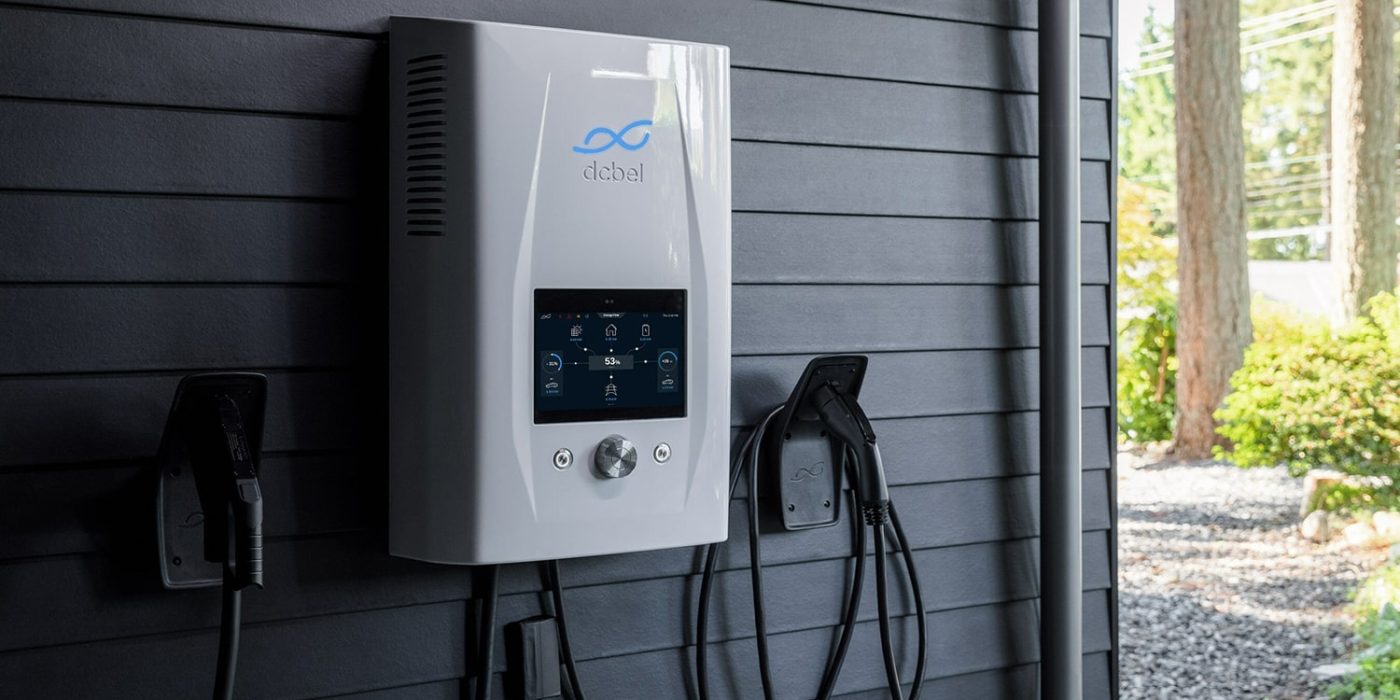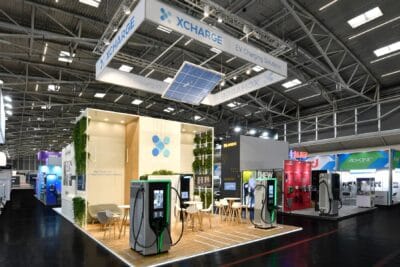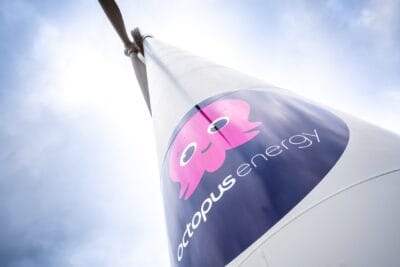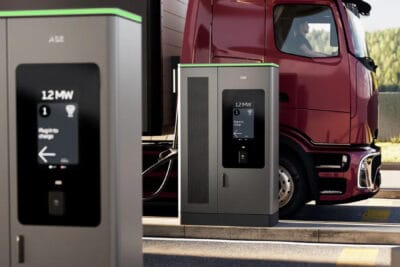Volvo Cars invests into home energy systems by dcbel (V2X)
Volvo Cars steps into the smart home business with an investment in an energy company based in Montreal, Canada. The Swedish car manufacturer has chosen to support dcbel’s R&D endeavours through its venture capital arm, the Volvo Cars Tech Fund but the technology may tie in well into Volvo’s own V2X efforts.
“Home Energy Management Systems will play a vital role as we move towards bi-directionality of electric vehicles,” said Alexander Petrofski, CEO of Volvo Cars Tech Fund. “Rising energy prices coupled with frequent blackouts are challenges faced by consumers today, and our investment in dcbel and their technology can help alleviate those challenges for our customers.”
The company’s bi-directional smart charger can leverage EV energy to power a home at peak utility pricing or during a power outage, as mentioned by Petrofski. Less dramatic use cases for V2X functionality naturally include forms of virtual power plants, helping control energy demand and sell energy back to the grid.
As for dcbel, the company is just developing the r16 Home Energy Station and hopes Volvo will help with its go-to-market ambitions.
Its smart charger is geared not only towards EVs but also enables intelligent home energy management via the Orchestrate OS platform. The system simultaneously converts the electricity from rooftop photovoltaics and stored inside home batteries. The device, therefore, automates the management of whole-home energy, writes dcbel.
Once installed, the Home Energy Station will also automate all energy management decisions involving the EV, including automatic charging, vehicle-to-home peak shaving when utility rates are high, blackout protection and vehicle-to-grid export based on demand, and protection against battery degradation.
Using proprietary apps, homeowners can maintain visibility and control over their energy through smartphones and other connected devices.
Smart homes, smart EV charging
Volvo Cars has been working towards advanced bi-directional charging latest since 2022. The first model to feature such capability will be the EX90 – other models on the new EV platform will also support V2X technology and offer expanded functionality compared to other carmakers.
While Hyundai-Kia relies on an AC-only solution for its E-GMP models, the VW Group has opted for a DC solution for the upcoming bidirectional charging of its MEB models. The VW solution has advantages in vehicle-to-home applications since most work with DC. However, simple but effective applications such as the vehicle-to-device function at Hyundai, where any device can be operated with electricity from the battery via an adapter, are impossible.
Volvo has not made such a fundamental decision for the customer – or instead, decided that the customer should have a choice: The EX90 and its upcoming platform brethren will support bidirectional charging via both AC and DC, as Lutz Stiegler, Solution Manager Electric Propulsion at Volvo Cars, explained in an interview with electrive.net. “Our in-car charger is bidirectional by default so that it can charge and discharge at 11 kW,” Stiegler said. “If we were to offer DC only, the onboard charger doesn’t have to be able to do that, so a pure charging function is enough. But via the DC wall box, which then needs its own inverter, that becomes much more expensive for the customer.”
While today’s announcement does not refer to concrete products, the companies’ objectives align.
“Volvo Cars and dcbel share the same values: safety, sustainability and the pursuit of technological advancement,” said Marc-Andre Forget, CEO of dcbel. “We are proud to have been selected by Volvo Cars and excited to play an important role in their mission to fully electrify their fleet.”
Volvo Cars has not disclosed the sum of the investment.





0 Comments